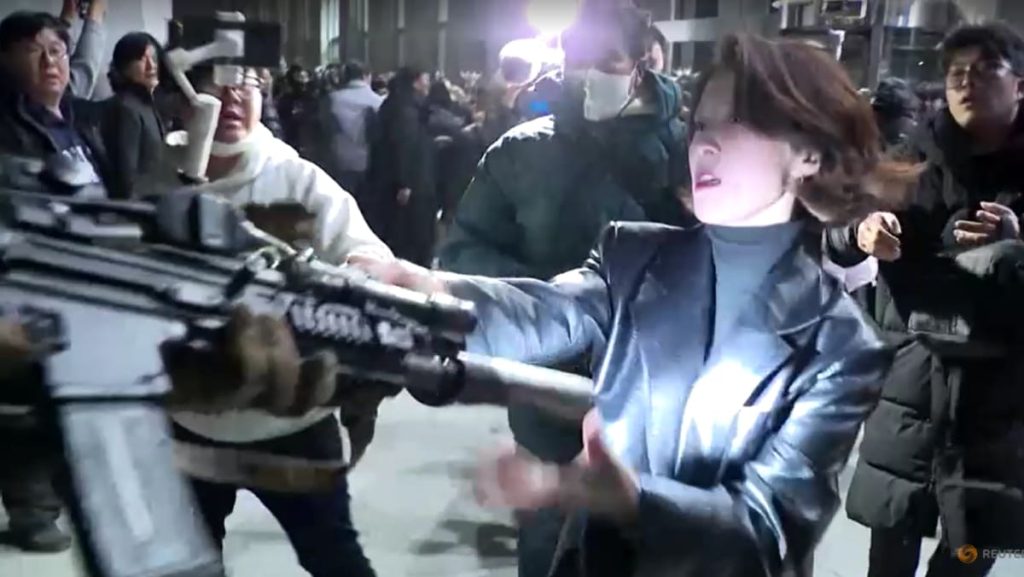In a striking incident that captured public attention, Ahn confronted a soldier amidst a tense atmosphere surrounding martial law troops. In a video, she can be seen passionately urging the soldier to “let go” of his weapon and expressing a profound sense of shame over the situation. When she intervened to grab the soldier’s rifle, he recoiled, underscoring the gravity of the moment. Ahn’s bold act has resonated deeply within the community, fueling discussions about citizen resistance against authority during times of crisis. Her actions, while seen as courageous by some, were downplayed by her; she acknowledged that many others had shown greater bravery in standing up to the martial law troops.
Reflecting on her actions, Ahn expressed modesty, emphasizing that her stance was not exceptional in the larger context of resistance. She mentioned that numerous individuals had taken significant risks, including efforts to halt armored vehicles, suggesting a broader movement of opposition against governmental aggression. Ahn’s humility highlights the collective spirit of dissent that has emerged amidst the backdrop of escalating tensions. This sentiment resonates with the growing dissatisfaction among the populace towards the government and its handling of the martial law situation.
In a recent statement, the commander of the martial law troops affirmed that there was no intention to use firearms against civilians, attempting to assuage fears of violence. This reassurance was echoed by the country’s vice defense minister, who claimed that no live ammunition had been supplied to the soldiers. However, these declarations may have done little to quell the anxieties among the public, as the mere presence of martial law carries significant implications for civil liberties and rights. The atmosphere remains charged as citizens grapple with their safety and the government’s intentions.
The political fallout from these tensions has been significant, with South Korean opposition lawmakers preparing to impeach President Yoon Suk Yeol. This move reflects a growing sentiment of disillusionment and distrust among the populace regarding the president’s leadership, especially in light of his controversial decision to impose martial law. Ahn articulated this sentiment powerfully, suggesting that the public has already internally “impeached” the president, signaling an overwhelming loss of faith in his governance.
Ahn’s critique of President Yoon’s capabilities resonates with many who feel that the declaration of martial law resembles reckless behavior rather than a serious governmental action. Her statements reflect a broader discontent with how the leadership is perceived to manage crises, particularly when such measures are enacted. As the situation unfolds, it emphasizes the need for accountability and responsible governance, particularly in times of heightened anxiety and unrest.
Ultimately, Ahn’s actions and the subsequent political developments illustrate a critical juncture in South Korea’s democratic discourse. The unfolding events serve as a reminder of the power of citizen action and the importance of public scrutiny in holding leaders accountable. While the confrontation with the soldier was a singular moment, it encapsulates the wider climate of resistance, urging a reckoning with authority and a call for leadership that genuinely reflects the will and safety of the people. The collective voice of dissent could potentially reshape the future political landscape of South Korea.

